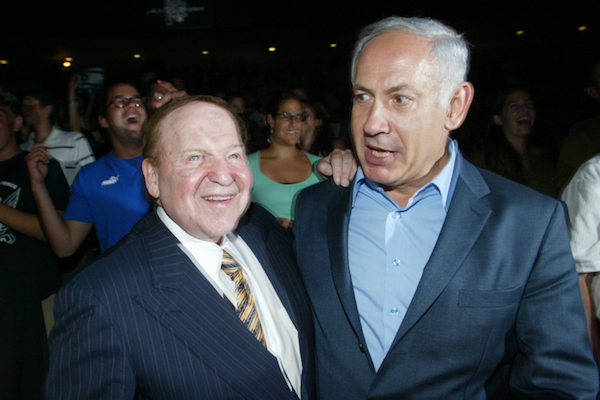Although U.S. policy toward Israeli settlements has fluctuated over time, successive American officials have consistently taken a dim view of the settlement movement. Trump and his advisors may change all that very soon.
By Derek Davison

Although President-elect Donald Trump and his foreign policy team are only beginning to develop their agenda for his coming administration, his surprising election on Tuesday may already be having an impact on Israel’s West Bank settlement policy. On Thursday, Jason Greenblatt, co-chairman of the Trump campaign’s Israel Advisory Committee, told Israel’s Army Radio that “it is certainly not Mr. Trump’s view that settlement activities should be condemned and that it is an obstacle for peace, because it is not an obstacle for peace.” Later, Israeli Science Minister Ofir Akunis, also speaking on Army Radio, “called for a renewed wave of settlement construction,” according to the Associated Press.
Greenblatt’s insistence notwithstanding, Israel’s West Bank settlements are a tremendous obstacle to Israeli-Palestinian peace. Liberal Jewish advocacy group J Street calls them “one of the starkest threats to the two-state solution,” and a simple look at a map of the West Bank explains why. Israeli settlers either occupy or control over 40 percent of the territory in the West Bank, including the roads that now connect the settlements to one another, and the distribution of the settlements throughout the West Bank makes the creation of a contiguous Palestinian state geographically impossible. International consensus holds that the settlements are violations of the Fourth Geneva Convention prohibiting forced population transfers from occupied territories, and thus illegal.
It’s not even possible to reconcile Greenblatt’s claim with the comments of pro-settlement politicians inside Israel. In his Army Radio interview on Thursday, Akunis said, “We need to think how we move forward now when the administration in Washington, the Trump administration and his advisers, are saying that there is no place for a Palestinian state.” If Trump’s advisers are green-lighting new settlements in Trump’s name, and Israeli cabinet ministers take that to mean Trump believes “there is no place for a Palestinian state,” then clearly those settlements are very much an obstacle to peace.
Trump on settlements
This is not the first time Trump has been identified as pro-settlements. In an interview with the Daily Mail in May, Trump rejected the idea of a pause in settlement construction:
Asked whether there should be a pause in new construction—which the Obama administration has pressured Netanyahu’s government to observe in order to bring the Palestinians to the negotiating table—Trump responded: ‘No, I don’t think it is, because I think Israel should have—they really have to keep going. They have to keep moving forward.’
‘No, I don’t think there should be a pause,’ Trump said. ‘Look: Missiles were launched into Israel, and Israel, I think, never was properly treated by our country. I mean, do you know what that is, how devastating that is?’

In the same interview, Trump said that he would “love to negotiate peace. I think that, to me, is the all-time negotiation.” But given that the Palestinian Authority has repeatedly made a settlement freeze a precondition to peace talks, it’s not clear how Trump imagines that he’ll be able to negotiate peace in light of his position on settlements.
Although U.S. policy toward Israeli settlements has fluctuated over time, and Washington’s actions have never matched its rhetoric, American officials have nevertheless consistently taken a dim view of the settlement movement. The Obama administration has been a harsher critic than previous administrations, though there too its rhetoric was never followed up by action. Witness the administration’s decision to go ahead and shower Israel with billions of dollars in new military aid despite the Israeli government’s provocative decision to announce new settlement construction shortly after the aid deal was reached.
Trump’s advisors
Trump’s pro-settlement views are not surprising given the advisers he surrounded himself with during the presidential campaign. Foremost among them was Greenblatt, the Trump Organization’s chief legal officer, whose qualifications as an adviser on Israeli-Palestinian affairs are questionable at best. David Friedman, another lawyer and Trump friend who also served as one of Trump’s leading Israel advisers, is a loud advocate for settlement construction who uncritically regurgitated Israeli Prime Minister Benjamin Netanyahu’s up-is-down assertion, made in a September video address, that Palestinian opposition to the settlements amounted to ethnic cleansing.
Walid Phares, one of Trump’s top Middle East advisers, has long been a favorite of Washington’s pro-Israel lobby. Newt Gingrich, one of Trump’s top surrogates and an early favorite to serve as his secretary of state, notably referred to the Palestinian people as “invented” in a 2011 interview and has argued in favor of unchecked settlement construction as an Israeli “bargaining advantage” in peace talks with the Palestinians (if there’s one thing Israel needs in its negotiations with the Palestinians, it’s another bargaining advantage).

But none of these advisers is likely to have as much influence over Trump’s thinking as Sheldon Adelson, the billionaire Republican donor who spent $25 million on getting Trump elected. Adelson is currently among a group of defendants that a group of Palestinians and Palestinian-Americans is suing for $34.5 billion for their support of the settlement movement. Adelson has also reportedly spent millions of dollars to combat the Boycott, Divestment, Sanctions (BDS) movement, which seeks to create economic leverage to end Israel’s occupation of Palestinian territories.
The promise of Adelson’s financial support was enough to get Trump to shift his rhetoric on Israel-Palestine almost completely between the primary, when he insisted that he would be “neutral” in Israeli-Palestinian negotiations, and the general election campaign. Trump has moved so far in the pro-Israel direction that he’s now positioned well outside historical American norms on a range of Israel-Palestine issues, including the question of recognizing Jerusalem as Israel’s capital. Some of the most right-wing members of Netanyahu’s government are positively giddy at what Trump’s election means for the Palestinian cause. Education Minister Naftali Bennett, who heads the hardline Jewish Home party and is seen as seeking to be prime minister one day, said the idea of a Palestinian state was now over:
Trump’s victory is an opportunity for Israel to immediately retract the notion of a Palestinian state in the centre of the country, which would hurt our security and just cause,” Bennett said. “This is the position of the president-elect…The era of a Palestinian state is over.
Derek Davison is a Washington-based researcher and writer on international affairs and American politics. This article is reprinted, with permission, from Lobelog.com.
